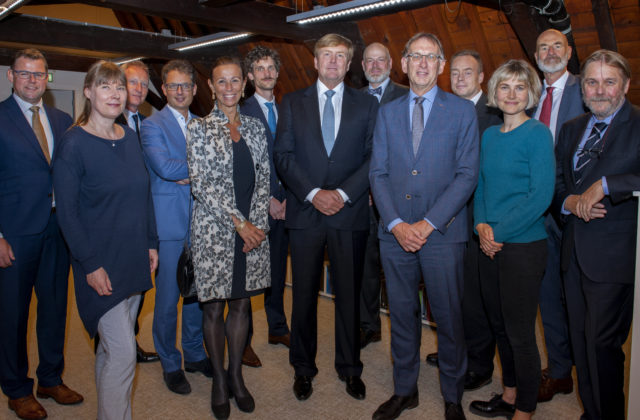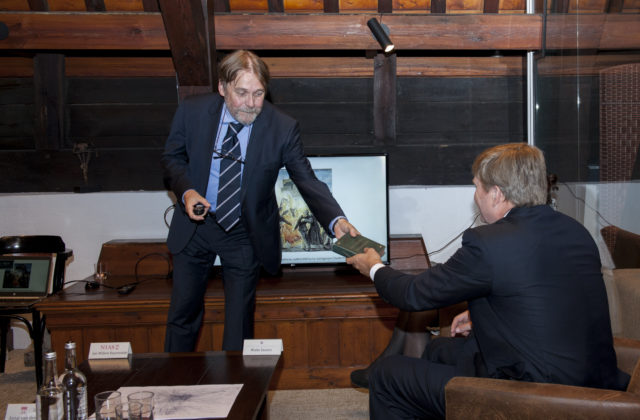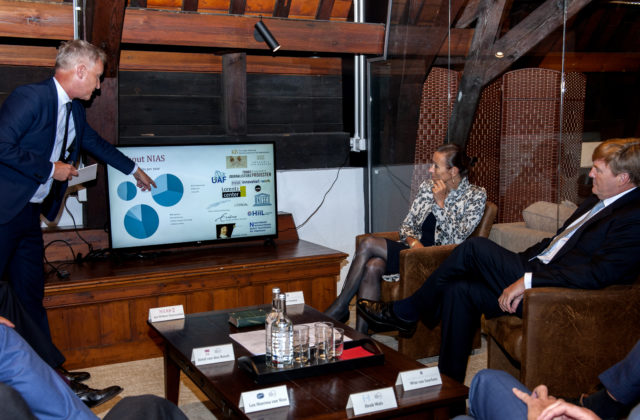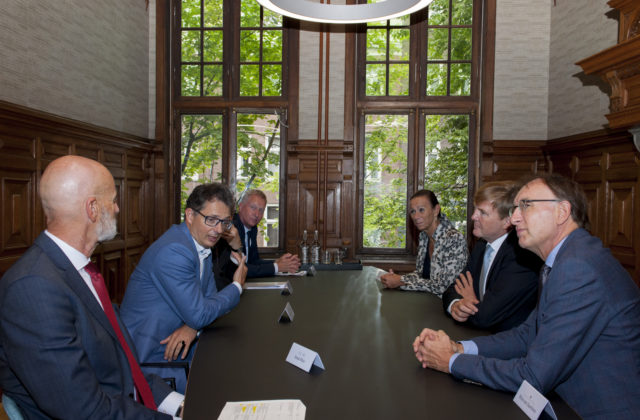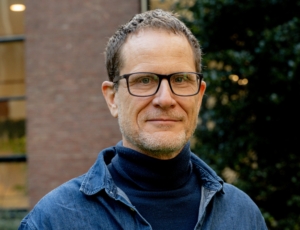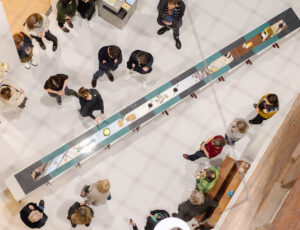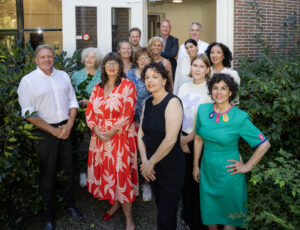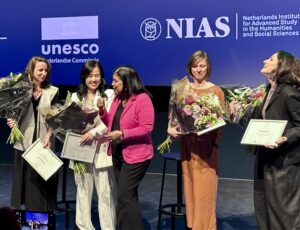The working visit began at the Humanities Cluster (HUC), an alliance of the three humanities institutes: Meertens Institute, Huygens ING and the International Institute of Social History (IISG). The King was welcomed by the President of the KNAW, Wim van Saarloos, and the directors of the three cluster institutes. After a brief conversation, the King and the rest of the party toured the Spinhuis building. In previous centuries, this building was founded to keep convicted beggar women off the streets and put them to work spinning and sewing. Now it is a modern workplace for researchers and support staff. The King spoke to people about how modern, digital, techniques can be used to answer long-standing research questions.
Subsequently, the King visited the Netherlands Institute for Advanced Study in the Humanities and Social Sciences (NIAS-KNAW) located in the adjacent St. Jorishof building. There he spoke to the NIAS director, Jan Willem Duyvendak and a former NIAS fellow, Joep Leerssen. Professor Leerssen described his research on Banal Nationalism, how communal singing cultivates a ‘Sense of Us’ and how digital humanities methods can be implemented to visualize abstract phenomena such as nationalism.
Joep Leerssen: “All together now!...” A Sense of Us, Banal Nationalism and Communal Singing
The greatest power of nationalism is that it is rarely perceived as a political ideology but is experienced as a comforting sense of national familiarity with a whiff of the nostalgic scent of home – clinging to the prevailing public mood. This so-called ‘banal’ nationalism is diffuse – a background noise or flavor that influences both high and low culture. One way to gain more understanding is to apply the repertoire of digital humanities techniques that can amplify and so visualize such abstract phenomena. An example presented by Joep Leersen is the national anthem such as, Tollens’ “Wien Neerlands Bloed” sung by German and Baltic choirs in the 19th century and disseminated in song books such as, “If you can sing – sing along with us”. He presented images of network analyses as well as a German song book.
About the KNAW
The Royal Netherlands Academy of Arts and Sciences (KNAW) is the forum, the voice and the conscience of the arts and sciences in the Netherlands. The Academy derives its authority from the quality of its members, who represent the full spectrum of scientific and scholarly endeavor and are selected on the basis of achievements. As an autonomous organization, the KNAW is in a position to safeguard researchers’ interests and the quality of research as well as advise the government. It is also responsible for fifteen internationally renowned institutes whose research and collections put them in the vanguard of Dutch science and scholarship.
King Willem-Alexander is patron of the KNAW.
